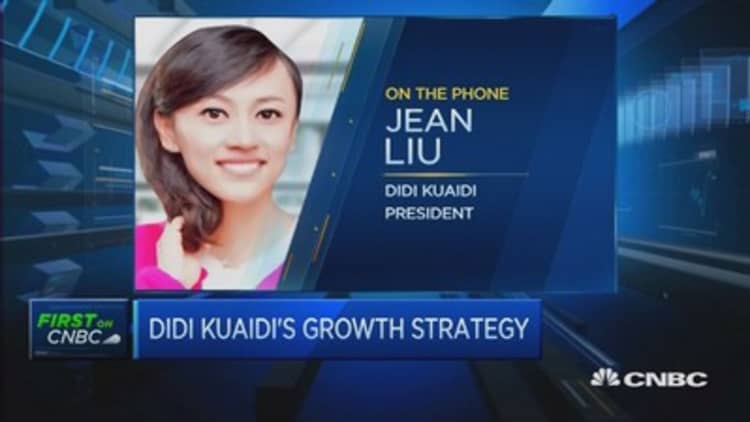Asia's home-grown taxi app landscape could experience more consolidation and partnerships down the line amid rising competition between old and new players in a multi-billion dollar market.
"There is definitely more consolidation coming. Taxi apps are growing at an exponential rate, so it's smart to take out candidates before they can steal market share," Bradley Gastwirth, CEO at U.S advisory firm ABR Investment Strategy, told CNBC.
Indeed, a look at the sector's activity in recent months suggests the wheels are already in motion.
In February, leading Chinese ride-hailing services Didi Dache and Kuaidi Dache (dache is the Mandarin word for taxi) merged to form a new company called Didi Kuaidi after battling for market share over the past year.
Not only did the merger create one of China's most successful start-ups, currently valued at $16 billion, it resulted in a rare alliance between Alibaba and Tencent, backers of both apps. Last month saw further signs of collaboration between the two Internet behemoths as both announced investments in Chinese smart television start-up Whaley Technology.
Meanwhile, Indian taxi app Ola—formerly known as Olacabs—acquired smaller player TaxiForSure for $200 million in March.
Read MoreWhat's cheaper in your city: Cabs or ride shares?
"TaxiForSure brought in tremendous complementary value—both on the supply as well as demand side. On supply, they operated on an operator model as against Ola's driver entrepreneur model...We continue to leverage these benefits and build TaxiForSure independently, as an economy brand in India," Anand Subramanian, Ola's senior director of marketing communications, told CNBC.
When asked whether more acquisitions were in the pipeline, Subramanian had no comment but was optimistic about the market's potential.
"The personal transportation space in India is still in its nascent stages. As India's largest player (with as much as 80 percent marketshare), we think we are still scratching the surface and there's a lot of headroom to go deeper."
Consolidation is inevitable, explained Shiv Putcha, associate director of service provider strategies at IDC Asia-Pacific.
"There are lots of players right now and we haven't even seen the existing taxi unions and licensed cab operators pushing their competitive apps. I expect that there will be room for about two to max three private players in each market not counting the traditional players."
But even among a market's three biggest players, consolidation is still likely, according to Clement Teo, senior analyst at Forrester Research.
"It's a matter of understanding how to win within regulatory parameters and looking at rivals as an opportunity instead of competition."

Keeping enemies close
It's not just mergers and acquisitions at play in the industry; investing in rivals may also gain traction.
Last month, Didi Kuaidi invested an unknown amount into Southeast Asia's GrabTaxi while the Wall Street Journal reported last week that the Chinese start-up also participated in Lyft's latest funding round alongside Alibaba and Tencent. Lyft is Uber's top competitor in the U.S.
Read MoreWhat's behind Asia's Uber-sized problem?
IDC's Putcha is expecting more partnerships like this going forward.
"Taxi-hailing and ride sharing fall under what is generally a heavily regulated industry so it is crucial to get the local edge anyway you can. Didi Kuaidi doesn't have the local connections that GrabTaxi has built up so the partnership makes sense."
Didi Kuaidi's actions also undermines Uber as the latter aggressively expands into Asia with its high subsidies and innovative services like food delivery. Both firms are currently racing to out-do one another in the world's second-largest economy, with Didi raising $3 billion and Uber securing $1.2 billion in their latest funding rounds last week.
Indeed, taking stakes in competitors seems to be an increasingly popular pattern throughout e-commerce.
In July, Alibaba signed a joint venture agreement with Singapore's national postal firm, Singpost, to further integrate e-commerce logistics as the Chinese behemoth expands into Southeast Asia.

